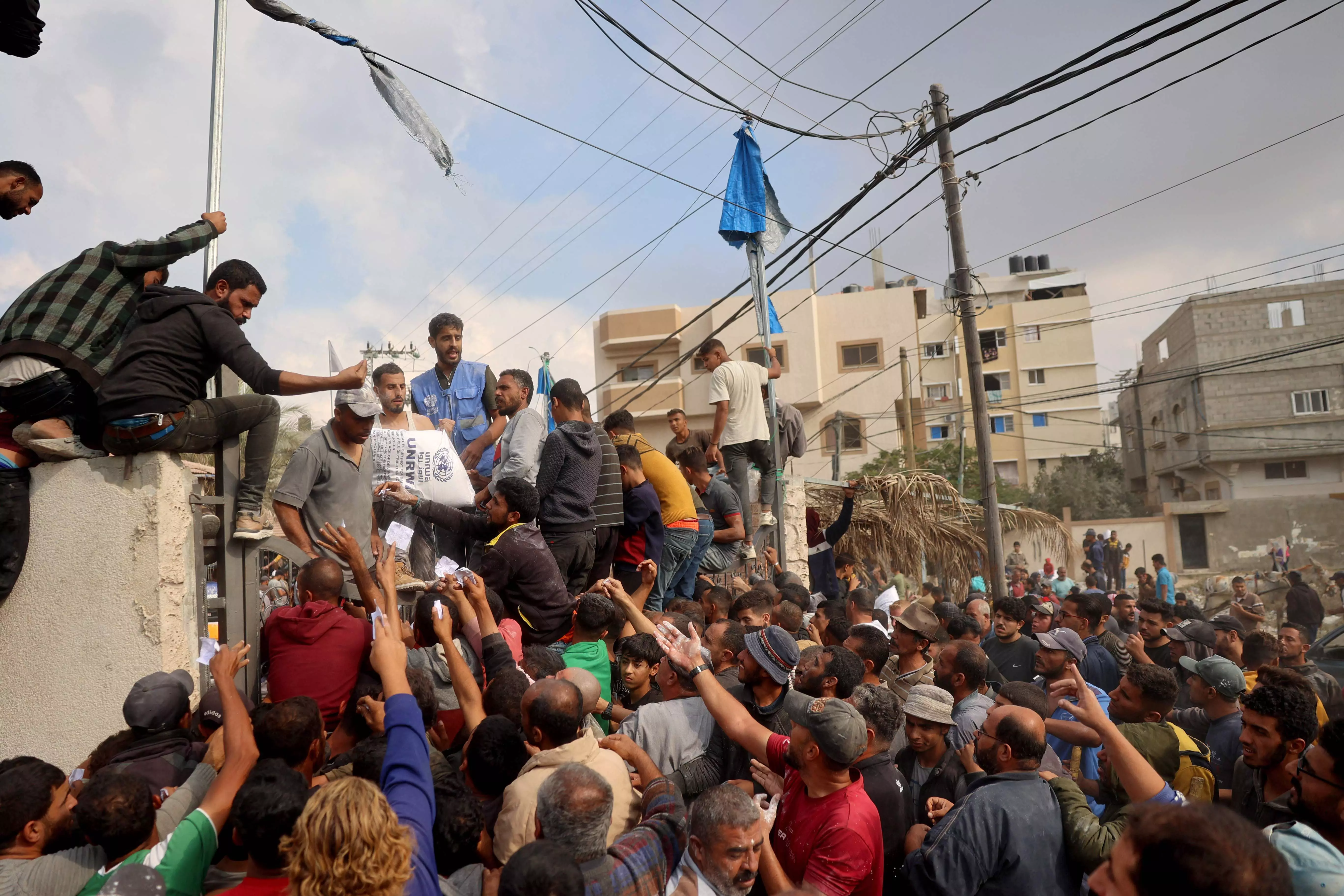
There is a strong likelihood that famine is imminent in parts of northern Gaza, where Israeli forces are conducting a major offensive, hunger experts warned on Friday. An alert issued by the four experts called the humanitarian situation throughout the “extremely grave and rapidly deteriorating” and worst in the north. The Famine Review Committee warned that “famine thresholds may have already been crossed or else will be in the near future.
” The committee’s four independent experts are part of the Integrated Food Security Phase Classification, or IPC, which is made up of a network of 15 U.N. and other organizations that monitor global hunger and food security.
The experts said all actors in the war in Gaza must take ...
to avert and alleviate this catastrophic situation.” They said this includes not only combatants — Israel, Hamas and other militant groups — but . Cindy McCain, executive director of the U.
N. World Food Program, tweeted after the alert was issued: “The unacceptable is confirmed: Famine is likely happening or imminent in north Gaza.” “Immediate steps MUST BE TAKEN to allow safe, rapid & unimpeded flow of humanitarian & commercial supplies to prevent an all-out catastrophe.
NOW,” she said. Its alert follows an Oct. 17 report by an IPC analysis team that said .
That’s the emergency level, Phase 4, on the five-level classification system for hunger. It said 133,000 people were classified as facing catastrophic food insecurity, which is Phase 5 along with famine. That IPC team did a risk assessment and concluded that under a reasonable worst-case scenario, all of Gaza faced a risk of famine between November and April 2025, the experts said.
Since their report, the committee said, there have been a number of significant developments: Israel’s offensive largely for a month, a last month than at any time since the war began in October 2023, and food access reaching “critical levels and deteriorating.” The Israeli military body handling aid to Gaza, COGAT, said it is preparing to open a new aid crossing into Gaza as for Israel to increase humanitarian supplies into the territory or risk restrictions on military assistance. But COGAT did not say when the crossing will open or if aid will be delivered to north Gaza.
The U.S. says Israel must allow a minimum of 350 trucks a day carrying food and other supplies.
In October, 57 trucks a day entered Gaza on average, according to COGAT figures, and 81 a day in the first week of November. The U.N.
puts the number lower, at 37 trucks daily since the beginning of October. It was an average of 500 trucks daily before the war, said Jean-Martin Bauer, WFP’s director of food security and nutrition analysis. “The supply of the essentials in Gaza has really dwindled, and the consequence of that is very high food insecurity and the imminent famine in northern Gaza,” Bauer told The Associated Press.
“The message is: Act now to let aid in and let aid programs and humanitarians do what they need to do to assist the population.” The Famine Review Committee cited people fleeing and trapped in the north, skyrocketing food prices and and other civilian infrastructure in recent weeks, including the arrest of medical staff by Israeli forces. It called for a new IPC analysis, saying “it is already abundantly clear that the worst-case scenario developed by the analysis team is now playing out in areas of the northern Gaza Strip.
” “It can therefore be assumed that the starvation, malnutrition, and excess mortality due to malnutrition and disease, are rapidly increasing in these areas,” it said. “Famine thresholds may have already been crossed or else will be in the near future.” Famine results from an extreme lack of food, starvation, destitution, extremely critical acute malnutrition, including among at least 30% of children and deaths.
The committee called for immediate action to end the siege in northern Gaza, allow unimpeded supplies of food, water, medical and nutritional supplies to enter the entire Gaza Strip, the repair of health and sanitation facilities, and release of health staff. The experts warned that the failure to respond in the next few days will lead to further deterioration of the humanitarian situation and additional, unavoidable deaths. “If no effective action is taken by stakeholders with influence, the scale of this looming catastrophe is likely to dwarf anything we have seen so far in the Gaza Strip since Oct.
7, 2023,” the committee warned..












